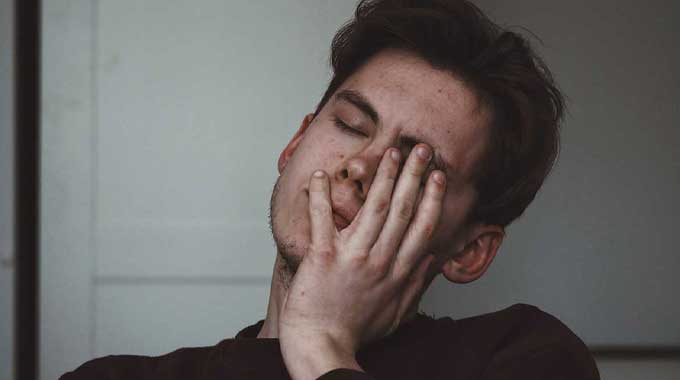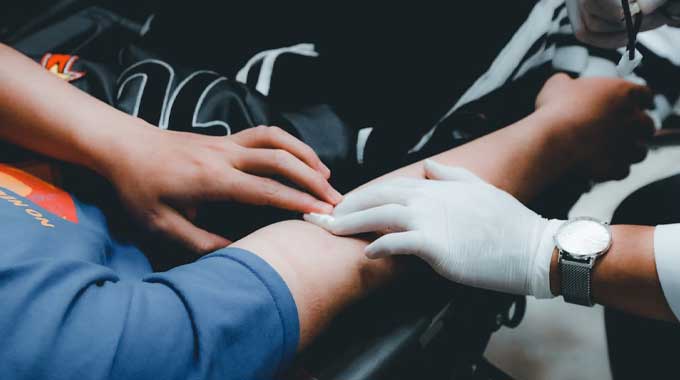Clinical depression is a medical condition characterized by periods of low mood and a loss of motivation and enjoyment. There is more than one kind of diagnosis for unipolar and bipolar depression. What are the differences between these two and how can they be treated?
- What Is Major Depressive Disorder
- Diagnostic Guidelines
- How Is It Diagnosed
- What Is Unipolar Depression
- Bipolar Depression Explained
- Bipolar Spectrum Disorder
- Bipolar I Disorder
- Bipolar Ii Disorder
- Cyclothymia
- Difference Between Unipolar And Bipolar Depression
- What Are The Risk Factors
- Links Between Depression And Other Kinds Of Mental Illness
- Treatments For Unipolar And Bipolar Depression
- Pharmaceutical Treatments For Depression
What Is Major Depressive Disorder?
Clinical depression, also known as major depressive disorder, is a condition whereby a person is subject to prolonged depressive episodes. These bouts of depression may last for weeks or even months and can have a wide range of negative impacts on someone’s quality of life.
It is distinguished from depression as a mood or feeling in its severity and length of time, as well as the genetic markers which can predispose someone towards suffering from clinical depression.
In some severe cases, people suffering from this mood disorder may also experience delusions and hallucinations.

Diagnostic Guidelines
The Diagnostic and Statistical Manual-V (DSM-5) lays out a framework for diagnosis of depression. According to the DMS-5, someone must be suffering from a minimum of five of the listed symptoms during a two-week period. One of the symptoms must also be either a depressed mood or a loss of interest or pleasure.
Some of the clinical characteristics of depression are:
- a near-constant depressed mood
- a loss of interest or pleasure
- insomnia or hypersomnia
- a change in body weight of over 5% within a month
- fatigue
- decreased concentration
- excessive guilt or a feeling of worthlessness
- psychomotor retardation
- recurrent thoughts of suicide and/or death
As well as needing to meet at least five of these criteria, a diagnosis of depression must be shown to have a significant impairment on the person’s life. The symptoms must not also be attributable to other mood disorders or substance use disorders.
How Is It Diagnosed?
It is standard practice for someone to take part in a clinical interview. A mental health professional will help them fill out a mood disorder questionnaire in order to distinguish the type and extent of the symptoms. This helps determine if there are any mental health conditions present and which ones they are.
A physical check-up is also conducted in order to rule out any other medical conditions which may be responsible for the symptoms. This may involve blood tests or even brain imagining. These tests can help pinpoint any substances or neurological issues which may be contributing.

What Is Unipolar Depression?
The terms unipolar depression and unipolar disorder are often synonymous with major depressive disorder (MDD). This refers specifically to a major depressive episode that does not change or include any manic symptoms.
MDD is one of the most common mood disorders in the US. According to a National Institute of Mental Health (NIMH) survey in 2020, around 21 million adults experienced at least one major depressive episode. This is around 8.4% of all adults, with people between the ages of eighteen and twenty-five being the most likely to suffer from this. Women were also more likely than men to experience a major depressive episode.
Bipolar Depression Explained
Bipolar depression has most of the same depressive symptoms as major depression but differs in a few key ways. Previously known as manic-depression, bipolar disorder involves changing mood episodes. People with bipolar depression experience depressive episodes followed by manic episodes. These are periods of time characterized by feelings of heightened or abnormal energy and happiness.
These periods of elevated mood are normally called hypomania. However, if they are especially severe, they may be referred to as just mania. During these manic episodes, people may also behave especially erratically and impulsively.

Bipolar Spectrum Disorder
As with many mental disorders, there is some disagreement over whether it is a spectrum or a set of distinct disorders. The DSM-5 describes bipolar depression as a spectrum of disorders with three subtypes:
Bipolar I Disorder
Bipolar I disorder involves mixed episodes of depression and mania. Manic symptoms can vary in extremity and even involve psychotropic symptoms.
Bipolar II Disorder
Bipolar II disorder involves hypomanic episodes as well as depressive episodes. Hypomanic episodes are less severe than manic episodes. This sometimes makes it hard to distinguish between a hypomanic episode and a period without depressive episodes.
Cyclothymia
This is characterized by hypomanic symptoms and low mood episodes. In both cases, the symptoms are less severe than a major depressive episode or a manic episode.
Difference Between Unipolar and Bipolar Depression
While bipolar and unipolar depression both involve periods of intense low moods and despair, it is only in bipolar disorder that one might see periods of abnormally elevated mood. Patients with bipolar disorder may experience mood swings that can vary in extremity, although they still appear as distinct periods.
This can present very differently from unipolar depression, which is more characterized by profound and extended bouts of depression and despair. During this time, there is an increased risk of self-harm or suicide.
Bipolar depression also sometimes results in self-destructive and impulsive behaviors. This could be in the form of buying things you cannot afford or saying or doing things that will clearly have negative consequences. Things can happen during manic episodes which then exacerbate the periods of depression that follow.

What Are The Risk Factors?
There are many factors at play in leading to depression, both biological and environmental. A number of studies have shown a link between the expression of certain genomes and the development of depression. It is likely that this is a combination of many genetic changes, rather than a single gene being responsible.
Here are some additional risk factors for developing depression:
- physical, emotional, or sexual abuse
- death or loss
- stress at work or in private life
- personal conflicts or violence
- a history of substance or alcohol abuse
- reaction to other medications
Links Between Depression And Other Kinds Of Mental Illness
There are many kinds of mental health conditions that might cause distress or impairment to an individual. The human mind is very complex, and so are the mental health problems that can arise. Many of these also do not have easily identifiable biological markers, so diagnosing them comes with a challenge.
The National Comorbidity Survey Replication (NCS-R) looks at the trends and relationships between various mental illnesses across the USA. This helps inform researchers, healthcare providers, and policy-makers with regards to how to diagnose and treat these. Co-morbidity refers to the existence of multiple conditions that occur together.
A link is often drawn between obsessive-compulsive disorder (OCD) and bipolar depression. OCD is marked by constant, intruding thoughts. These are often accompanied by distinct and obsessive routines. These routines are performed to the detriment of the person’s daily function and can be very hard to interrupt or stop.
Some studies have shown a similar ‘perfectionist’ pressure in both major depressive disorder, OCD, and some eating disorders.
There is also a link between certain personality disorders and anxiety disorders. Mental health conditions are rarely black and white and it is possible to have more than one condition at any one time.

Treatments For Unipolar And Bipolar Depression
Affective disorders, or mood disorders, can be treated in a number of different ways. Treatment programs often begin with a clinical assessment. Any prior mood episodes or a family history of depression should be disclosed here to help reach the right diagnosis and treatment.
One of the most common treatments for unipolar depression and bipolar illness is therapy. This might involve cognitive-behavioral therapy (CBT), either individually or in groups. Other kinds of therapy such as psychodynamic psychotherapy or interpersonal therapy might also be used to help manage symptoms of depression.
Pharmaceutical Treatments For Depression
It is also possible to treat bipolar depression using antidepressant medications. Antidepressants can help alleviate a lot of the symptoms of recurrent depression and bipolar mania, but do not really tackle the root causes of these conditions.
Medications such as Selective Serotonin Reuptake Inhibitors (SSRIs) work by keeping serotonin in the system for longer before reuptake so that they have more time to work on the brain. They also tend to have less severe side effects than most other antidepressants.
Mood stabilizers such as lithium are also used to help people with bipolar disorders. They tend to work by preventing the shift into mania or manic episodes. Some anticonvulsants and antipsychotics are also used when treating bipolar depression.
For those who still have some residual symptoms of depression after remission, adjunctive antidepressant treatment is recommended.

Regardless of the diagnosis, GIA Miami can provide the right treatment program to help someone suffering from depression live a happier, more manageable life. It can offer mixed treatment programs that can tackle multiple mental health and substance abuse issues simultaneously. Just speaking with a loved one or medical professional can kickstart the process of breaking free from the symptoms of depression. Call today and start your journey to recovery.







